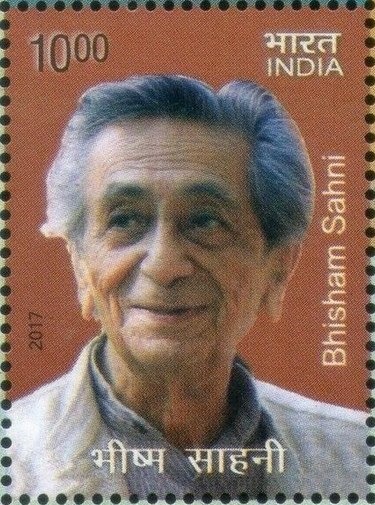Remembering Bhisham Sahni on His Birth Anniversary: A Literary Giant Who Chronicled the Nation’s Conscience
By Amit Kumar

On August 8, we celebrate the birth anniversary of Bhisham Sahni (1915–2003), a towering figure in modern Hindi literature, whose works continue to resonate deeply with readers and audiences alike.
Born in Rawalpindi in undivided India, Sahni was not just a prolific writer, but also a playwright,
translator, and actor, most remembered for his searing partition novel Tamas (1974), which brought
the horrors of communal violence and displacement into the literary and public spotlight.
An active participant in the Indian freedom movement, Sahni worked closely with the Indian People’s
Theatre Association (IPTA), alongside his brother, the renowned actor Balraj Sahni. His engagement
with political and cultural causes infused his writing with rare authenticity and empathy. From
organizing relief during the 1947 Rawalpindi riots to later joining the Communist Party of India,
Sahni’s life was a blend of activism, art, and intellect.
His literary oeuvre spans across genres, six novels, over 100 short stories, five plays, children’s
literature, translations of Tolstoy, and a deeply reflective autobiography Aaj Ke Ateet. Yet, Tamas
remains his most iconic work, capturing the trauma of Partition with unflinching honesty and
humanism. Adapted into a powerful television series in 1987 by Govind Nihalani, Tamas became a
landmark in Indian visual storytelling.
Sahni’s other acclaimed works include Mayyadas Ki Madi, Chief Ki Daawat, and the play Kabira
Khada Bazar Mein. His stories are known for their sharp wit, subtle irony, and deep psychological
insight into human nature. He received several prestigious honors, including the Padma Bhushan in
1998 and the Sahitya Akademi Fellowship in 2002.
Bhisham Sahni’s voice, gentle yet bold, compassionate yet critical continues to guide us through the
complexities of identity, history, and humanity. On his birth anniversary, we remember him not just
as a writer, but as a chronicler of the nation’s soul, whose words continue to stir reflection, dialogue,
and hope.
